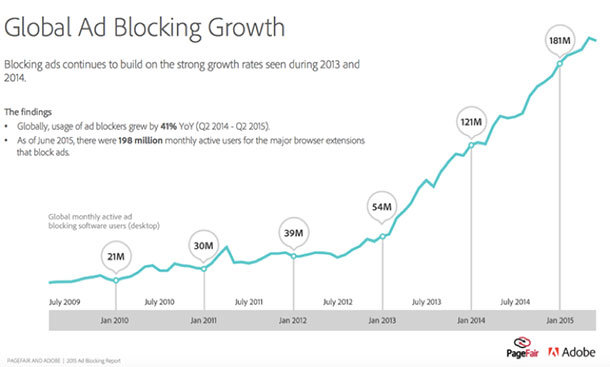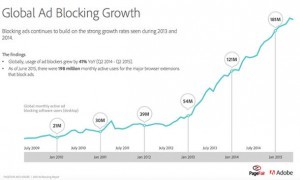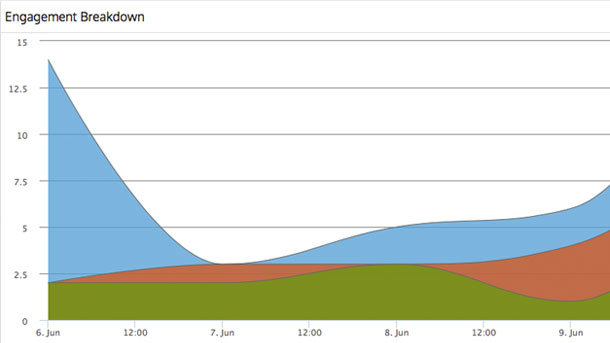
Internet adverts are the primary source of revenue for most websites. Apart from subscription-based sites, most websites are free to browse, thanks to the advertisements displayed on the web pages. This model of the internet has been steady over the last two decades. But, as time goes by, ad companies have become more and more aggressive in their approach, which has led to the use of ad-blocking software dramatically rising.
If you open a random web page, you will undoubtedly see many ads based on browsing history, cookies, and other private information. More annoyingly, many ads are deceiving, forcing the users to click on them to view the original content. No one will disagree that the digital ad business has reached a point where the users find the ads an annoyance rather than helpful.
This atmosphere has given birth to ad blockers. Users can now install software or a browser plug-in to block the ads from being displayed. This prevents the ads from displaying, hefty ads from eating up bandwidth, and lets pages load faster. Ad blockers are gaining more and more popularity from old players like 'AdBlock Plus' to Opera’s new, free built-in blocker. The rise of ad blockers is threatening the economic model on which the internet is based.
Recent Rise of Ad Blocking
According to several reports from internet research organisations, ad blockers are rising. An IAB UK report published in March 2016 shows that approximately 22% of web users (UK) use ad blockers, up 4% since October 2015. A staggering rise, making it very alarming for digital marketers.
Increased use of ad blockers means sites will no longer be able to support themselves through this valuable income stream. The more significant sites may well move into a subscription-based model, while the smaller ones may disappear entirely. Therefore, the growing popularity of ad blockers is threatening the diversity of the internet.

The graph above shows the global ad-blocking growth on the desktop.
Reasons behind the increasing popularity of Ad blockers
As discussed above, digital marketing organisations have neglected the issue of poor user experience (UX) for too long, almost encouraging the use and development of ad-blocking plugins and software. We can summarise the key reasons behind the popularity of ad blockers below:
- Most of the ads ignore the user experience of a website
- Ads collect personal data. Users are concerned about their privacy on the internet. Overly personalised ads disturb the user, and hence they turn towards ad blocking.
- Ads have become so heavy that they cause a noticeable delay in page loading. Blocking ads ultimately makes the browsing experience smoother and faster.
On the surface, ad blocking is good for end users. However, in the long run, they will disrupt the open atmosphere of the internet. Closing off the mainstream of revenue for sites will lead to some closing. This could lead to the internet becoming a more closed place controlled by a few large companies.
Digital marketers need to realise that their ad delivery system is no longer welcomed by internet users. No one minds small, relevant and unobtrusive adverts on a web page, but huge multimedia-enriched ads that damage a site's usability must be discontinued.
To reverse this trend.
Key steps to stop the increasing use of ad blockers:
- Advertisements on the web must be aligned with the usability and UX of the web page
- Sites should inform the users that the use of ad blockers will make the internet ecosystem unsustainable. The IAB UK report shows that 54% of users will turn off ad blockers to access a site if requested. Furthermore, people between 18 and 24 are more likely to respond to that request.
Here is the summary of the IAB UK report:
- The volume of ads per page must be reduced because pages overloaded with ads serve to encourage the user to install ad blockers
- Digital marketing organisations should form a standardisation system that will regulate the placement of advertisements on websites.
There is a fine on which digital marketers must tread to generate income but not alienate web users.




Leave a Reply